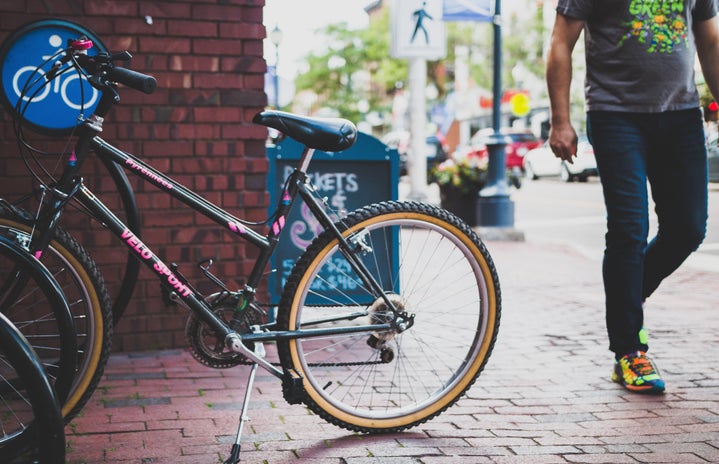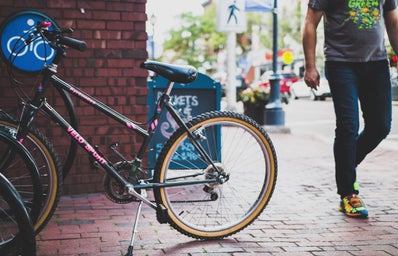I met with the Islamic Society’s Secretary Chloe Zillwood and we had a chat about how her hometown is different from Falmouth, what it’s like being a young Muslim woman on campus, and what intersectional feminism means to her. Check it out!
Name: Chloe Zillwood
Age: 21
Zodiac sign: Sagittarius
Favourite colours: Purple and grey.
HC: What is your faith background? Are both of your parents Muslim? If not, how did you deal with growing up in a household with two different religions?
CZ: I am a revert to Islam and it’s just myself. My family is Christian but they’re not practicing. So, I offically reverted in April last year but the journey was a lot longer than that. I’ve been looking into it since the middle of my first year of uni around two years ago. At times it’s been challenging for myself and my family. At first it was quite a shock and it took a lot of time for my parents to feel comfortable with my change in religion as they grew to know more about Islam. It can be challenging around Ramadan because breaking your fast is a communal practice, however as the only muslim in my home I had to prepare and break my fast by myself which felt quite lonely at times. Whilst it may have had its difficult moments, it was a chance to develop my faith and spirituality because I had more time for reflection. It’s a process of learning since my parents ask me a lot of questions about Islam, which if I do not know the answers I then have to research— it’s constant learning. I want to portray the best image of Islam and this pushes me to keep reflecting on my character and growth and the way I practice the religion.
HC: What course are you on and how are you involved in the uni or at FXU other than the Islamic Society? What do you do during your free time?
CZ: I’m on English Lit at Exeter and I’m a 3rd year so this is my second year being in the Islamic Soc committe. I work at FXU part time at the front desk and I spend the majority of my time ISoc related things; this involves meeting up with my sisters or other members. I also like baking and cooking; I love Turkish food but I love cooking anything. I like walking and being outside and I’m really interested in history, but I do spend the majority of my time with the ISoc like organisng events and meeting up with my sisters.
HC: What do some of your roles and responsibilities include?
CZ: First and foremost the main objective of my role is to ‘serve’ the Muslims on campus and to accomodate to their needs by providing an enviroment that is comfortable for them. I help deal with issues like settling in, where the prayer space is on campus, and where the Halal restaurants are. I help Muslim students adjust to the uni enviroment and provide them with the support that they need and make sure they get the best experience out of uni. We usually end up eating a lot of food when I meet with these students.
HC: Where are you from and how is it different from Falmouth?
CZ: I’m from Andover in Hampshire. Andover is actually quite similar to this environment since it’s quite a small town. It’s roughly the same size as Falmouth and it has a lot of greenery. There’s not much going on there but it is really peaceful and it’s also not too far from London.
HC: Why did you decide to study in Cornwall?
CZ: I orginally applied for the Stratham campus in Exeter but I didn’t get there so they offered me this campus. I was actually quite apprehensive about coming here since it’s in the middle of nowhere ha ha! I was looking forward to being in Exeter, but i do love being here and I quite enjoy a slower pace of life. I like being outside and being able to breathe clean air.
HC: How do you deal with the stigmas and stereotypes that come with being a young Muslim woman in England?
CZ: With a smile, with confidence, and with grace. Usually anything hurtful is born out of misunderstanding and misconceptions and that can usually be talked through in a conversation. Try not to let opinions such as these negatively affect your experience at uni.
HC: What’s the most bizarre thing that has happened to you while studying on Penryn Campus?
CZ: There was a hedgehog that lived outside my room.
HC: Do you consider yourself a feminist? How do you incorporate your religion into your feminism (if you consider yourself one)? How does Islam relate to issues with feminism and gender inequality?
CZ: Yes. So, Islam teaches that men and women are equal and that the rights of both genders are equally important. Islam teaches you to be humble and respectful and to take into consideration the rights of everybody around you and to keep working on yourself. Nothing is imposed in Islam and and it’s taught that we keep working on ourselves before we judge or worry about anyone else.
HC: What does intersectional feminism mean to you?
CZ: To me it means giving everyone a voice and the chance to be heard and there’s more listening than speaking from the people that need to do it. It’s ultimately for different women to work towards to the same goal of equality together. It’s about opening the discourse up and for everyone to express their thoughts.
HC: What’s something that you look forward to in the future whether it includes uni or the Islamic Soc?
CZ: I look forward to graduating and looking back at my achievements at uni. I look forward to watching ISoc grow in numbers and in strength and to the sense of community and sisterhood that will follow as a result of this. With larger numbers, who knows what Isoc can achieve.
HC: If you could be any animal, what would you be?
CZ: A giraffe since they’re really gentle in nature and they literally look at things from a different perspective.
HC: If you had the option of trying out a different society, which would you choose and why?
CZ: Expedition Society because I like being outside and being away from technology. I like the idea of retreating to nature.
HC: What’s your favourite thing about the Islamic Soc?
CZ: The sisterhood, the friendships, and bonds you can make with other women. I like the sense of community that I get even when I’m away from home.
HC: What advice to have for young women like yourself that experience a double dosage of Islamophobia and misogyny on this campus or in this country?
CZ: First of all breathe. If you feel incredibly uncomfortable, remove yourself from the situation and seek the appropriate support through student services or the FXU. If you feel comfortable enough, I think talking helps so I would suggest that you talk to someone that you trust. Try to remember that this is the opinion of one person or a small group of people and you don’t deserve to be treated that way and that there is support available; the uni wants to support you and so do your friends and, of course, the ISoc wants to support you.
HC: What should a non-Muslim onlooker do in case they witness Islamophobia?
CZ: Speak up if you feel comfortable to. We have the responsibility to stand with eachother in the face of injustice. Don’t be silent, unless you feel uncomfortable of course. In either case, please comfort the victim and help them seek support.
HC: What have you learned since being at university for a little over 2 years?
CZ: I’ve learned patience and perseverance; something worth having is never easy to achieve. It takes a lot of hard work and dedication to achieve things that are worth having. There will inevitably be set backs but you need to accept that failure does not determine your growth. While your Internal growth can not be measured as such, I think that it is equally if not more important. Also, try not to compare your growth to anyone elses since you can never see how much you have grown yourself. I’ve learned that it’s important to know that growth is not only external, it is also internal. Don’t be too hard on yourself if you don’t see results as quick as you want.
Thank you so much Chloe!
Follow the Islamic Society at @FXUisoc on Twitter and @FXU_isoc on Instagram! Also make sure to visit their official FXU page.

